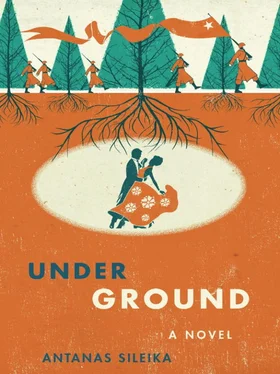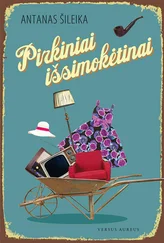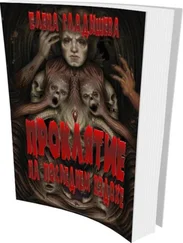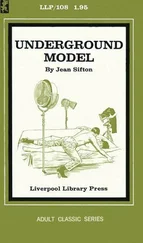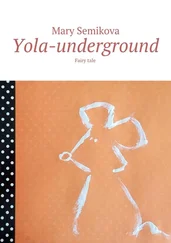Rimantas wanted to write and to publish, but the authorities would not let him do that unless he paid for his sins. They knew all about him and his anti-Stalinist poetry during the German occupation. Therefore, he was doomed to work for them for a while. But he still might be redeemed, and he wanted to shake off his obligations as soon as possible.
Now that the Reds had been in power for six years, they were building their ideological infrastructure. There was a new children’s publishing house opening up soon. He could be the publisher there and still have time to do his own writing. He had imagined a more illustrious life for himself, something a little more bohemian. Rimantas hated the world he lived in. But what could he do?
He had intended to buy his freedom with Lukas, but they had not been content to take only Lukas. No, they wanted him and Lozorius together, and so gave Rimantas an impossible task. How was he to get both of them?
The odds were very poor, but perhaps he had stumbled upon a solution to all of his problems by finding the sleeping Lozorius. If he gave Lozorius to the Cheka, they would be grateful to him. He would have fulfilled his part of the bargain. And if he gave them Lozorius in a way that blew his own cover, he would be out of a job with the Cheka and permitted to get back to work on his writing. In a way, this plan saved Lukas; Rimantas would be doing him a favour.
Rimantas’s plan, such as it was, was risky. But everything was risky now. In a world of many bad options, he had to take the one that seemed the least bad. He looked inside his briefcase. The grenade and the pistol were at the bottom.
He studied the landscape thoroughly. No one seemed to be around, but one could never tell. Worst of all would be to be caught by Lakstingala and Lukas. Neither would show mercy.
Rimantas walked over to the bunker and listened. The snoring was still very loud. He looked about one more time, pulled the pin of the grenade, waited a few seconds, wrenched open the lid, and threw the grenade inside. Then he closed the lid again and ran, pistol in one hand, briefcase in the other.
The grenade seemed to take a very long time to explode, blowing the hatch off the bunker. Rimantas waited a little, looked around, and then saw to his horror that Lozorius was crawling out of the bunker.
“You can’t kill me!” Lozorius shouted. “I swore that nobody could kill me!”
Whether the grenade had rolled under a table or gone into a corner or been deflected, Rimantas did not know. All he knew was the dreadfulness of a dead man rising to chase him. Rimantas had never been so frightened in his life. He fired off a few ineffectual shots from his pistol and began to flee across the fields. But the earth was muddy and the going impossibly slow. The faster he tried to run, the faster the mud adhered to his shoes. He heard Lozorius fire behind him and fell to the earth, trembling with terror, afraid he might have been shot.
Lozorius had awoken to the explosion, ears ringing, brain rattling, with a pain all down his left side where wood splinters had driven into his skin. But through the smoke and confusion and the ringing in his ears, he could see the square of light of the blown-out doorway. Freedom lay where the light was, so he took his pistol and charged out, firing.
Once outside, Lozorius had stood there, dazed. He shouted that he could not be killed, and then heard a few shots. He could not see properly—blood was running in his left eye—but there was a figure in the field, a figure that fell to the earth when he fired at it.
But where there had been one figure, soon there would be many. The Chekists did not go out alone. Lozorius looked to his left arm, all bloody through his shirt sleeve. He stood swaying, and considered his position for a moment, and decided it was hopeless. He felt a surge of relief.
“No one can kill me!” he roared. “No one but me!”
He put the pistol in his mouth and fired.
Lakstingala heard the explosion and the firing in the distance, but he was hampered by the wet fields and his need for stealth, as well as the darkening sky. He made his way as close as he dared and hid in a ditch. After a time a number of cars pulled up and slayers stepped out. A very tall man came to them. The man was finding it hard to make progress because his boots were encumbered with mud. He carried a briefcase in one hand.
IN THE FADING LIGHT, Lukas began to walk into the town of Merkine, to the house where Elena was living. Hardly anything seemed to move in the streets except for a dog at some distance, a hungry creature that slunk around the corner of a building.
The church bell rang at nine o’clock, causing him to jump a little. This must be the only town in the whole Soviet Union where the church bells were still permitted to ring. Somewhere a Red official would pay for this oversight when an inspector general came to town and discovered this bourgeois remnant.
In the dimness, Lukas thought of the machine gunner who had been up in the bell tower, and of the partisan who had fallen at the very crossroads Lukas was walking past. He went on. The brick house that they had blown up with the panzerfaust had been rebuilt, although he could not see the details in the twilight. Everything the partisans did in the town had been erased, as if they had done nothing at all.
A small Russian Orthodox church with a tiny onion dome stood in a square, a remnant of the czarist times, but boarded up now. He had no memory of such a church in the town. How was this possible? He had studied the place before the attack and kept watch on it during the fight, but if anyone had asked him, he would have said there was no such thing there.
They had gathered the bodies of their fallen comrades in the town square, but the body of his brother, Vincentas, was never found. That body must have been buried close by, and so Lukas felt as if his brother’s spirit hovered somewhere in the night, looking over him.
At the high school, once a Jewish school but now used by others, the light in the principal’s flat was burning. She was a very young principal, one who had graduated from this same high school herself not all that long ago. She had been the first to join the Komsomol, and was almost killed in those days for daring to do it. She had done better than any of her classmates, some of whom were shipped to the camps before they graduated. The others who still lived in the town were not in the least friendly with her, but she did not mind. They respected her position and that was enough.
Although Merkine was a small town, it was very old and it had once been a provincial capital, so it had a few houses that would not have been out of place in any old town. It was in this quarter that Lukas found the steps down to the half cellar, and knocked lightly four times on a door and then repeated the knock.
It was getting dark now; light came from a lamp on a distant street corner.
“Who’s there?” a woman’s voice asked from inside.
“An old friend,” he replied, as he had been told to.
She unlocked the door and opened it and he stepped inside.
She wore a head scarf to hide something wrong around her ear and down to her cheek on the left side of her face. There were two teardrop-sized scars on her left cheek, and her left hand was sheathed in a cotton glove with an empty finger. She took two steps back, and he could see she limped. She looked at him noncommittally, waiting for him to declare himself so she could begin to parse out who he was: a partisan or a Chekist, a slayer or a smiter, or one of the many types of men who worked for any of a variety of conflicting interests.
“Don’t you know me?” he asked.
“My eyesight is not very good.”
Читать дальше
